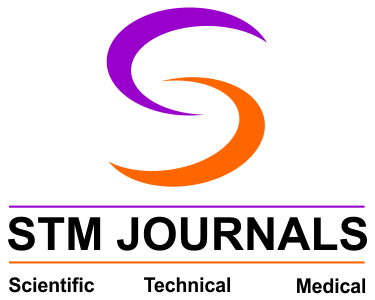The Center for Cyber Security Studies and Research is proud to announce the International Conference on AI in Cyber Security
STM Journals
You Write,
I want to...
[wpaicg_chatgpt]Agriculture
Applied Mechanics
Applied Sciences
Architecture
Ayurveda
Bio Technology
Chemical Engineering
Chemistry
Civil/Construction Engineering
Computer/IT
Education and Social Sciences
Electrical Engineering
Electronics & Telecommunication Engineering
Energy
Law
Life Sciences
Management
Material Science
Mechanical Engineering
Medical
Multidisciplinary
Nano Technology
Nursing
Pharmacy
Academic Accelerator
Advanced Science Index (ASI)
Chemical Abstracts Service (CAS)
Citefactor
CLOCKSS
Country Rank
Crossref
Directory of Research Journals Indexing (DRJI)
Genamics
Google Scholar
IJIF
Index Copernicus
Indian Science Abstract
Journal TOCs
LOCKSS
Publons
Scientific Indexing Services (SIS)
Scientific Literature (SCILIT)
Scimago Journal
Scopus
SJIF
SSRN
Web of Sciences
Wikidata
Explore Research
Total Articles : 10
A Descriptive Study to Assess the Knowledge Regarding Sexual Abuse Among Adolescent Girls at Government Senior Secondary School, Shri Goindwal Sahib
[This section belongs to Journal of Nursing Science & Practice (jonsp)]
Assessment of the Level of Perceived Social Support Among Nursing Students
[This section belongs to Journal of Nursing Science & Practice (jonsp)]
Diet Management of Cancer Patients Who Undergo Chemotherapy—An Experimental Study
[This section belongs to Journal of Nursing Science & Practice (jonsp)]
Effectiveness of State-level Workshop on Nursing Ethics and Legalities Knowledge Among Nursing Officers at KIMS Hospital Bengaluru
[This section belongs to Journal of Nursing Science & Practice (jonsp)]
Role Strain Among Male Nursing Students in Selected Nursing Colleges in Mangalore
[This section belongs to Journal of Nursing Science & Practice (jonsp)]
The Future of Healthcare: Role of Artificial Intelligence in Revolutionizing Nursing
[This section belongs to Journal of Nursing Science & Practice (jonsp)]
Gypsum Addition in Moulding Sand to Manufacture Defect Free Tin Castings
[This section belongs to International Journal of Fracture Mechanics and Damage Science (ijfmds)]
A Better Technique for Controlling Torque to Preload Relationship in the Accurate Assembly of Tiny Threaded Bolt Joints
[This section belongs to International Journal of Fracture Mechanics and Damage Science (ijfmds)]
Fire Detection System
[This section belongs to International Journal of Advanced Robotics and Automation Technology (ijarat)]
IoT Care: Breast Health
[This section belongs to International Journal of Advanced Robotics and Automation Technology (ijarat)]
Blog Articles
What They Say!
I just published at STM Journals and it went really well. They published very quickly and the quality of the peer review was excellent. I would really recommended STM journals to several colleagues of mine.
The journal selection analysis was very detailed and well-explained. It really goes to show how professionally and extensively you're experienced in this. It was extremely helpful and we feel more confident about the submissions.
Publishing at STM is what academic publishing should be -- a modern user interface with a fast and transparent review process -- all while offering open-access at reasonable prices.
Your quality and professionalism are much appreciated. We were a little sceptical going ahead with this considering "safety science" is very niche, not sure if it'll be as effective. But your team surpassed our expectations in every way possible. So, you are a very professional team.
The delivery was swift! This was really something we didn't expect because we urgently needed it right before the Festival holiday and we got it! The speed was awe-inspiring. Finally, a big thank you for being so helpful, and we look forward to collaborating with you again.

























